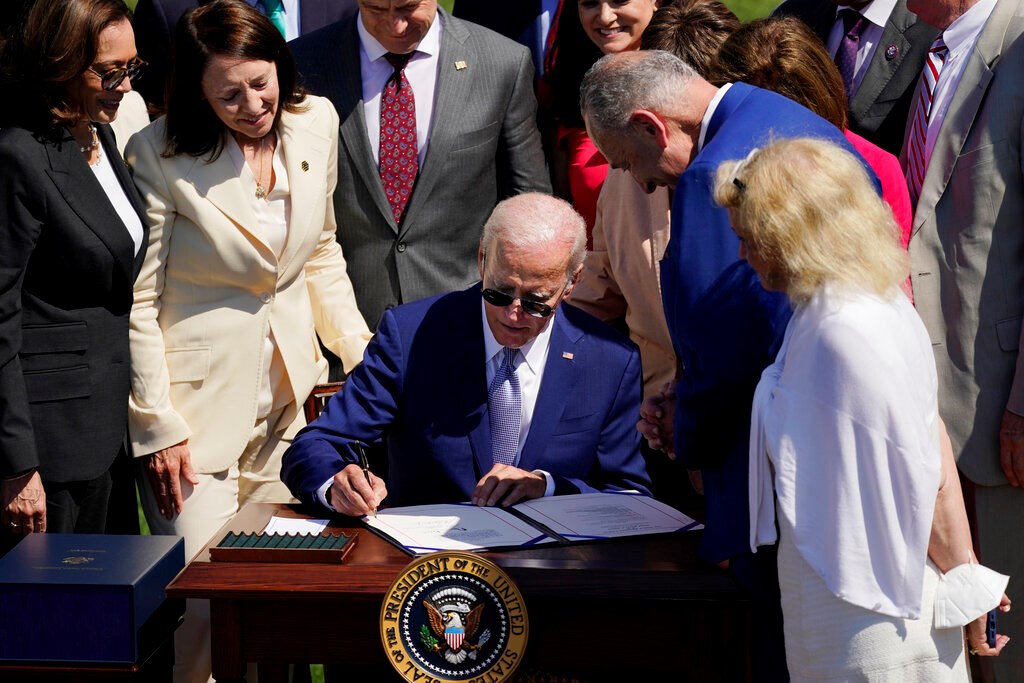US has no intentions to trigger subsidy race with allies: US official
According to Ramin Toloui, the CHIPS Act is solely intended to increase "resiliency" in the semiconductor industry.
-

President Joe Biden signs into law H.R. 4346, the CHIPS and Science Act of 2022, at the White House in Washington, Aug. 9, 2022 (AP /Carolyn Kaster)
US Assistant Secretary Bureau of Economic and Business Affairs Ramin Toloui said on Wednesday that the US does not seek to compete with its allies over tech subsidies in the process of diversifying semiconductor supply chains.
"The purpose here is because, again, of this recognition that we have a global semiconductor supply chain and we don't want in particular with our partners and allies - our policy is to be working at cross purposes and we also want to avoid a situation where we have something like a subsidy race, where there are large transfers to the private sector that aren't advancing our goal of creating a more diverse and secure semiconductor supply chain in the future," Toloui said during a press briefing.
Toloui noted that the State Department is looking to increase diplomacy with its allies with regard to cooperation on semiconductors and has held multiple dialogues in efforts to do so, including through the US-EU Trade and Technology Council.
The official stressed that the CHIPS Act is intended to increase resiliency to the semiconductor industry.
Read more: US pressure mounts on Amsterdam: New anti-China chip restrictions
In October 2022, the US Department of Commerce introduced sanctions on China, putting hurdles in Beijing's way to buy or develop advanced semiconductors.
China responded by filing a case with the World Trade Organization (WTO), hitting back at US export sanctions on microchips, further fueling the tech war between the two countries.
Earlier this month, China accused Biden's administration of ramping up tensions toward Beijing following targeted unilateral sanctions against Chinese companies, by adopting restrictions to limit the Asian giant's access to some technologies and pressuring other countries to do so.
Read more: S. Korea: Chipmakers' US subsidies toughening conditions

 2 Min Read
2 Min Read








